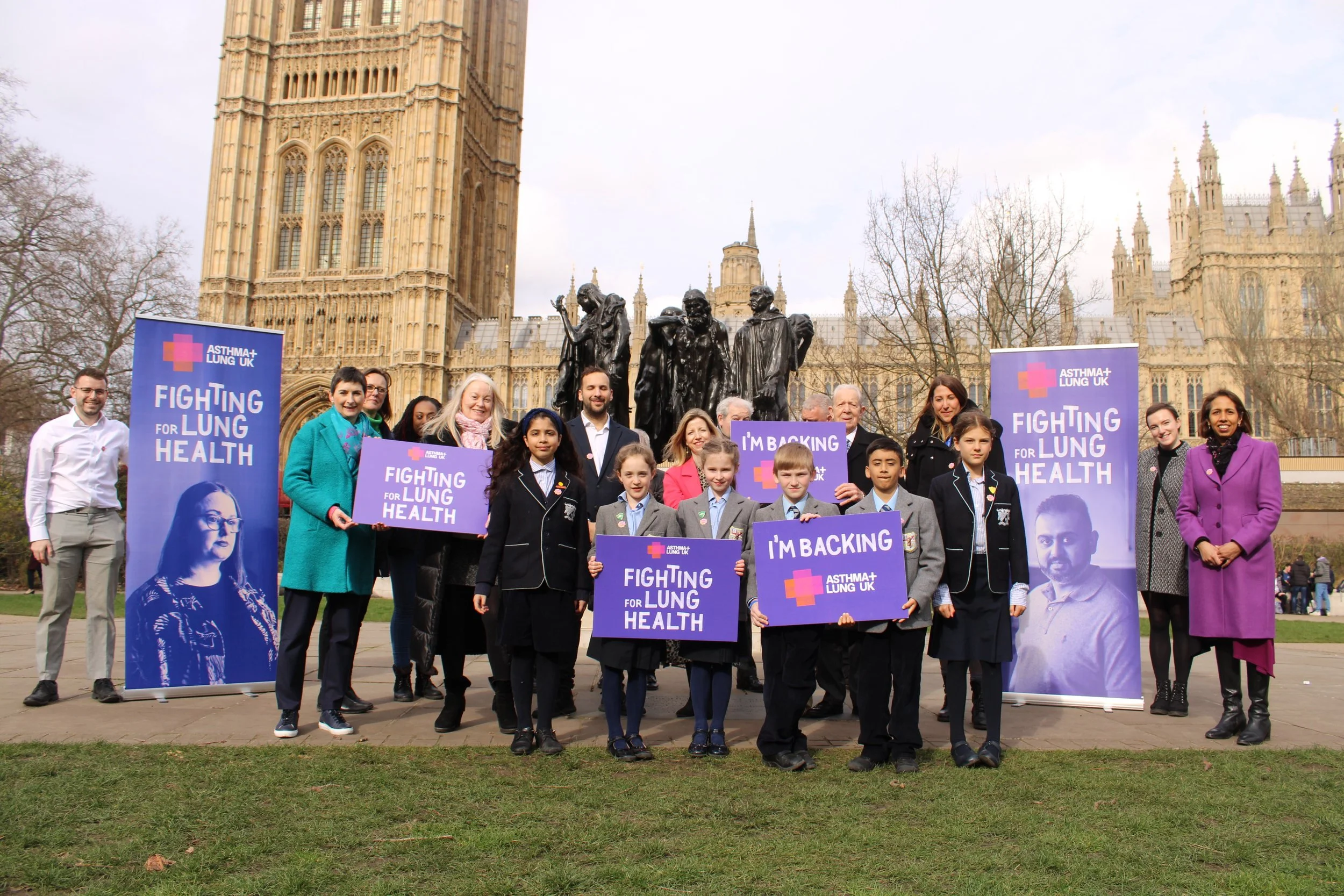No one should have to put their life on hold - why it’s critical we find out why asthma is worse for women
Alison, writer, marketeer and mother of three, 45, from Aberdeenshire, struggled to keep her asthma under control until she began HRT therapy, having reached perimenopause. Here she chats to an Asthma + Lung UK-funded researcher, Dr Ahmar Shah, who is researching the link between sex hormones and asthma.
I was diagnosed with asthma when I was 15, and at stages of my life, I’ve struggled with breathlessness, relying on regular courses of antibiotics, steroid tablets and inhalers to manage my condition.
I started to notice that my asthma symptoms would get worse a week before my period but it was difficult to be sure if this was due to my hormones or not. My asthma symptoms meant I struggled to do activities, like cycling, that my boys enjoyed and as a mother, that was hard. Without steroid tablets, I could barely breathe. In 2020, I took ten courses of steroid tablet treatment, which affected my mental health as I never knew when I’d next be struggling for breath.
Now that I’ve reached perimenopause, the preparation stage just before menopause, when the body goes through huge hormonal changes, I can see more clearly that my fluctuating hormones were making my asthma worse. So after seeing a specialist I started HRT therapy. It’s still early days, and I’ve had to adjust my HRT dosages at times my breathing has got worse. But I’m feeling the best that I have done in years, and I have even been able to start running again.
Researching the link
It’s been quite lonely not knowing others who’ve had a similar experience, or even having a link between hormones and asthma confirmed.
I believe it’s crucial that we fund more research into finding out why asthma is worse for women, especially at the onset of puberty and leading up to the menopause. I don’t want other women to have to put plans on hold, or to struggle to go on a bike ride with their children because they are worried about their breathing. I believe it is vital that women like me are given effective treatment, and no longer feel trapped in a cycle of breathlessness.
That is why I am so pleased to see that Asthma + Lung UK is shining a light onto this area as part of its Asthma is Worse for Women campaign. Asthma + Lung UK have recently funded a dedicated programme of research looking into why asthma is worse for women. One of the researchers who’s just received funding is Dr Ahmar Shah, based at the University of Edinburgh. I caught up with him so I could better understand his research.
What prompted your research into the area of hormones and asthma?
Dr Shah: My expertise is in the use of routinely collected, country-wide, large healthcare data sets. This is the type of data that is recorded when you visit your GP or visit the hospital. This data is collected to better understands patterns of disease and who’s most at risk of certain diseases. I am particularly interested in asthma. There is growing evidence that there is a clear difference between men and women. Many studies now suggest that female sex hormones are in part responsible for the differences seen in both the likelihood of getting asthma and the chances of dying from it. However, previously due to limited data there have been conflicting findings. I hope to use larger, country-wide datasets to better understand the link between asthma and hormones. During this research, I will also us hormone prescription data, such as when people are prescribed the contraceptive pill or HRT therapy.
Do you think one hormone is at fault in relation to women's breathing difficulties, or do you believe this can change from one person to another?
Dr Shah: This is an ongoing area of research, but of the studies that have been undertaken so far, both oestrogen (one of the main female sex hormones) and progesterone (sex hormone involved in periods and pregnancy) seem to play a role.
For women whose asthma is not controlled with preventer inhalers or other medication, do you see any downsides to women trying hormone-based treatments to see if they have a positive effect on their breathing?
Dr Shah: With my scientist hat on, I have to say we must have robust evidence for the use of any therapy or medication to ensure it’s safe in the long-term. This requires carefully designed clinical trials where people who have been prescribed a given therapy are followed over time. Currently, we’ve not had such trials to prove over time if hormone-based treatments for asthma are safe or not. This is something I would like to see in the future.
How do you think the possible link between hormones and asthma in women could be better communicated across the medical profession and to asthma sufferers?
Dr Shah: We do need a multi-dimensional approach and there are several avenues I think are under-utilised. Besides publishing peer-reviewed research papers, there needs to be a strong incentive for researchers to talk about their research findings to the public. I think most researchers don’t use social media enough. Social media has a phenomenal reach and we, the research community, must get better at using it for communication. There is also now an increasing trend of funders, such as Asthma + Lung UK, expecting patient and public involvement (PPI), which is very encouraging to see.
Why do you think it has taken so long for this research to begin?
Dr Shah: Asthma is a complex disease but because of years of underfunding, it has remained poorly understood. The approach taken to date has been ‘one size fits all’ and there was a belief that both men and women are equally affected by asthma. However, we now have mounting evidence, which clearly suggests that women are affected more severely than men and that the sex hormones have a role to play. Thankfully, due to this realisation, we are now seeing some investment in this area which is very welcome and urgently needed.
Do you want to learn more about how asthma affects women and what we’re doing to find the answers you need to live well with your lung condition? Sign up for specific news and updates on women and asthma here.
We empower people with lung conditions to make changes that can be transformative.
Please donate now to help make sure people with lung conditions can live well this year.








Beki is a PhD student from the West Midlands. She has several health conditions including severe asthma and Ehlers-Danlos syndrome (EDS). EDS is a rare inherited condition that affects connective tissue. Last May, Beki set herself a fundraising challenge to complete 180,000 steps to raise money to mark World Asthma Day and EDS Awareness Month.